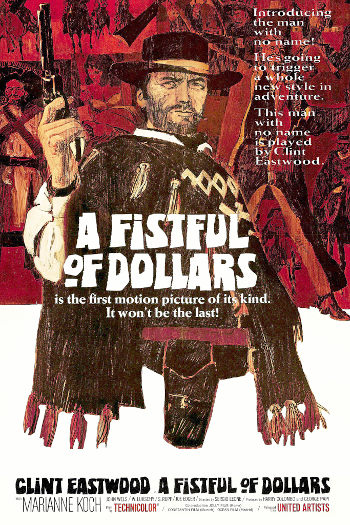 Clint Eastwood plays the poncho-clad stranger who rides into San Miquel, a town where most of the women are widows, a town where the only way to gain respect is to kill, so everyone except the coffin-maker has stopped working. It’s a town the saloon owner tells him to leave, as soon as possible, lest he wind up in one of those coffins.
Clint Eastwood plays the poncho-clad stranger who rides into San Miquel, a town where most of the women are widows, a town where the only way to gain respect is to kill, so everyone except the coffin-maker has stopped working. It’s a town the saloon owner tells him to leave, as soon as possible, lest he wind up in one of those coffins.
The Stranger has other ideas. This, after all, is also a town with two factions and two bosses. On one side are the Rojos, who specialize in smuggling liquor. On the other are the Baxters, gun runners extraordinaire. By playing one side off the other, the Stranger with a quick gun figures he can make a tidy sum.
It works just as he plans, for a while. Then he rescues a pretty woman named Marisol (Marianne Koch) so she can be reunited with her young son and husband. She’s been taken prisoner over a phony gambling debt her husband supposedly owes. The real reason she’s been taken prisoner is because Ramon Rojo (Gian Maria Volonte) wants her for his own.
Rojo has the Stranger captured and savagely beaten. And, suddenly, his presence in San Miquel isn’t all about money anymore.
Stylish is a way none of the other early Spaghettis could match. In the first 10 minutes, bandits have shot at the feet of a young boy, a sleeping man has ridden past Eastwood with a sign saying “Adios, Amigo” on his back and our hero of sorts has dismounted his frightened mule by grabbing a signpost and hanging from it.
It’s then, the Stranger utters his first word: “Hello.”
Hello, indeed. Clint Eastwood was about to become a star. The Spaghetti Western was about to become a phenomenon that would spawn hundreds of films and many imitators of Leone.
And the director was about to give us four of the best examples of what could be done with the tired old Western genre when viewed from a new perspective, culminating with the greatest Western ever made, “Once Upon a Time in the West” (1968).
Cast:
Clint Eastwood … Joe
Marianne Koch … Marisol
Gian Maria Volonte … Ramon Rojo
as Johnny Wells
Wolfgang Lukschy … John Baxter
Sieghart Rupp … Esteban Rojo
Joseph Egger … Piripero
Antonio Prieto … Don Miquel Benito Rojo
Jose Calvo … Silvanito
Margarita Lozano .. Consuelo Baxer
Daniel Martin … Julian
Benito Stefanelli … Rubio
aka:
Por un punado de dolares
The Magnificent Stranger (pre-release title)
Score:
Ennio Morricone
Trivia:
The film was supposed to be called “The Magnificent Stranger.” It’s name was supposedly changed three days before it premiered in theaters.
Sergio Leone and Ennio Morricone had known each other since third grade, but this film marked the first time they had worked together. Of course, it wasn’t the last.
Clint Eastwood was hardly Sergio Leone’s first choice for the role of the Stranger. He supposedly wanted James Coburn for the role, but he was too expensive. Charles Bronson, Richard Harrison and Eastwood’s “Rawhide” co-star Eric Fleming turned down the role. Then Fleming pointed producers in Eastwood’s way.
When the film first aired on TV in the U.S., a new scene was added, with a lawman ordering the Stranger to get rid of the gangs that ruled San Miguel. The new footage was directed by Monte Hellman. A double was used to play Eastwood.
The Stranger: “Get three coffins ready.
The Stranger, after the initial gunfight: “My mistake. Four coffins.”
The Stranger: “I don’t think it’s nice, you laughin’. You see, my mule don’t like people laughing. He gets the crazy idea you’re laughing at him. Now if you apologize, like I know you’re going to, I might convince him that you really didn’t mean it.”
Ramon Rojos: “I have decided it is very stupid to keep shooting at each other, and without any results.”
Esteban: “You’ve got out of your mind, Ramon.”
Ramon: “No, I’ve come to my senses. Like can be so precious. It’s foolish to risk losing it every minute, no? There’s plenty of space for everybody in this town.”
Ramon Rojos: “You mean you don’t admire peace?”
The Stranger: “It’s not real easy to like something you know nothing about.”
The Stranger: “The dead can be very useful sometimes. They’ve helped me out of tough spots more than once. First, they don’t talk. Second, they can look alive if I manage it right. And third — well, third if you shoot them there’s no worry because they’re dead already. Understand?”
Mrs. Baxter, hanging The Stranger a payment for capturing Marisol to trade for her son: “Very soon, you’re going to be rich.”
The Stranger: “Yeh, and that’s not going to break my heart
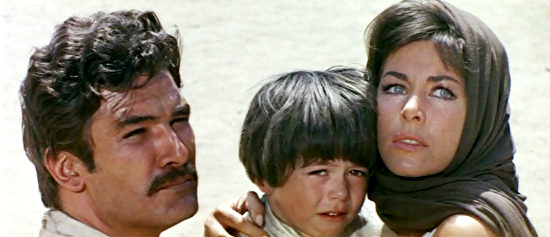
Daniel Martin as Julian, Nino Del Arco as Jesus and Marianne Koch as Marisol in A Fistful of Dollars (1964)
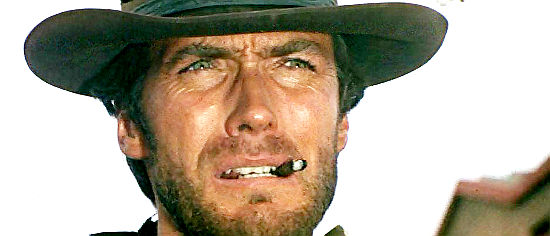
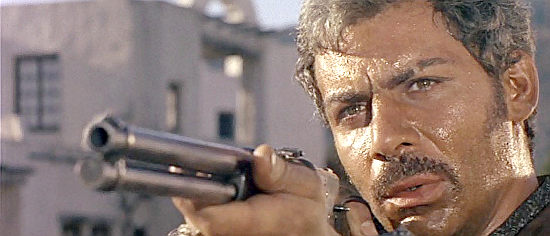

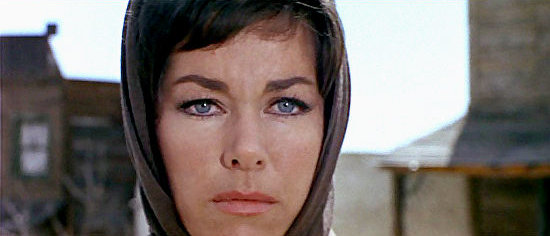
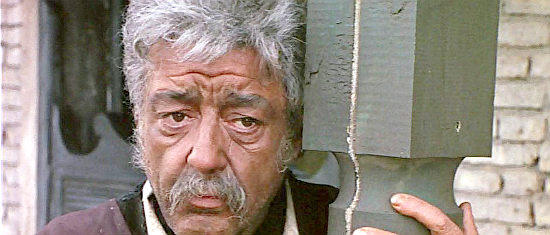
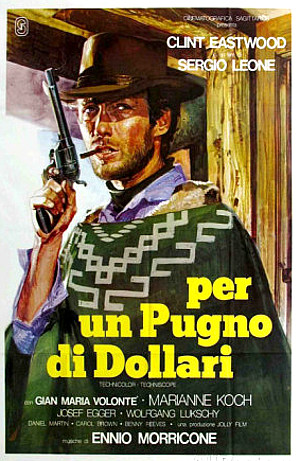
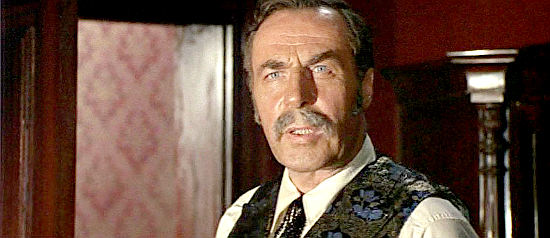
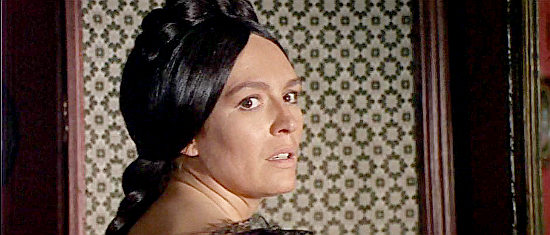

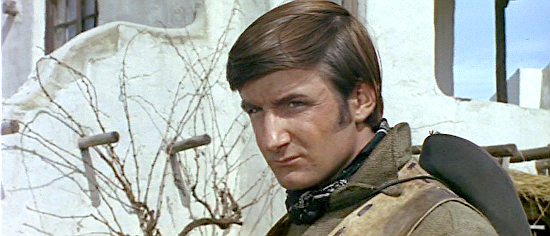
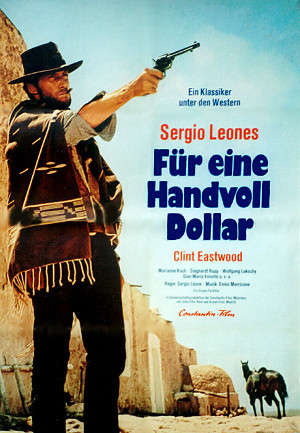
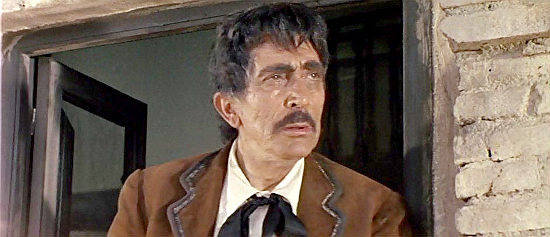
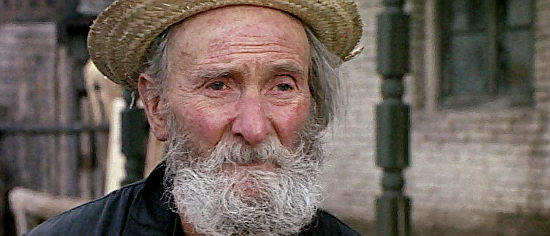
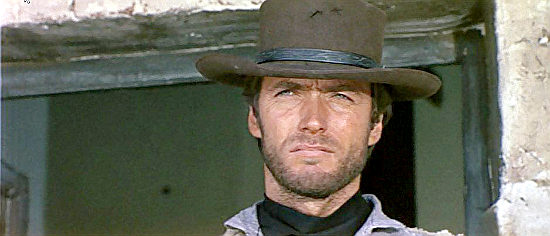
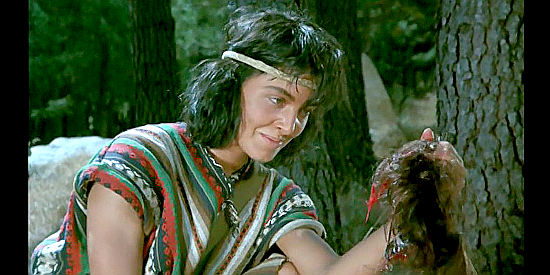
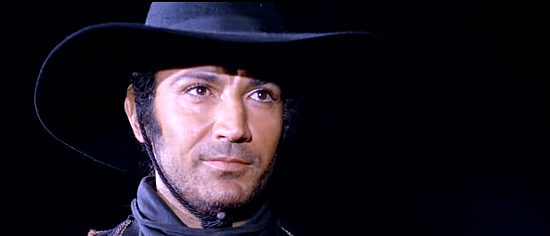
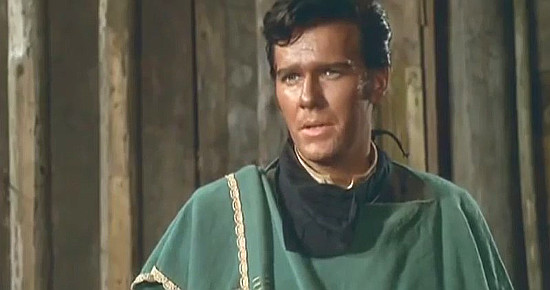
Leone’s masterpiece, equaled only by FOR A FEW DOLLARS MORE, after which his films became bloated and grandiose – though all had many great moments.